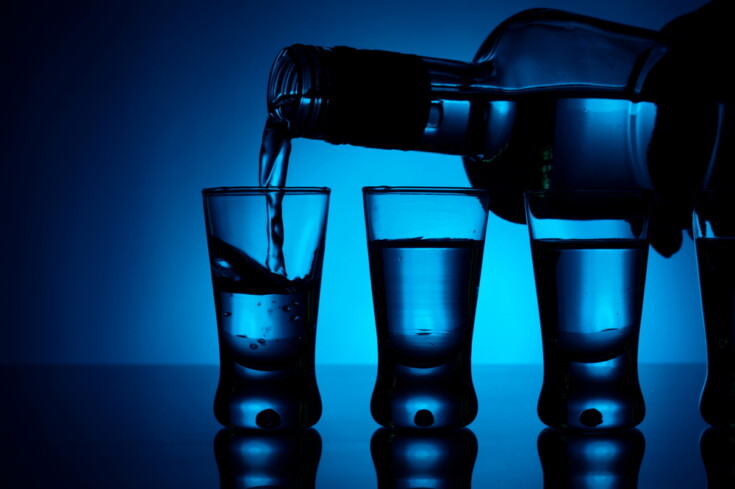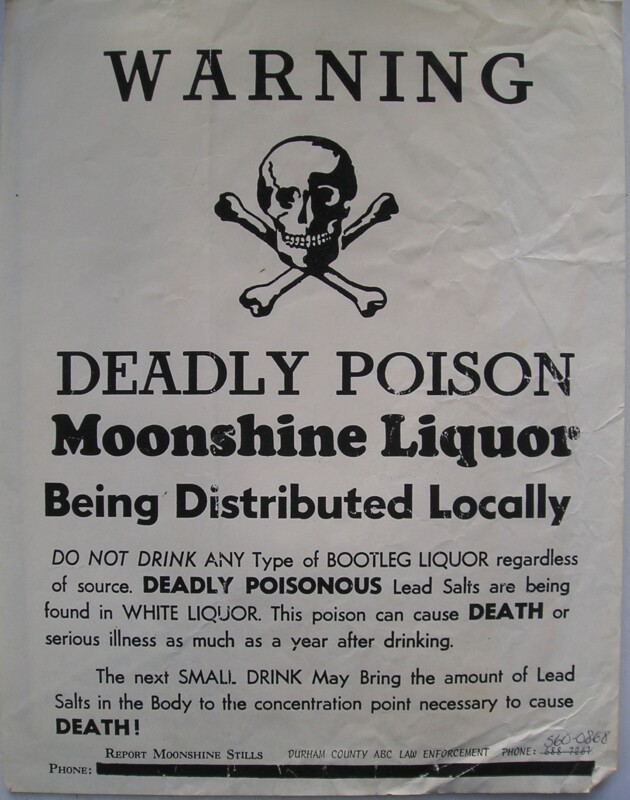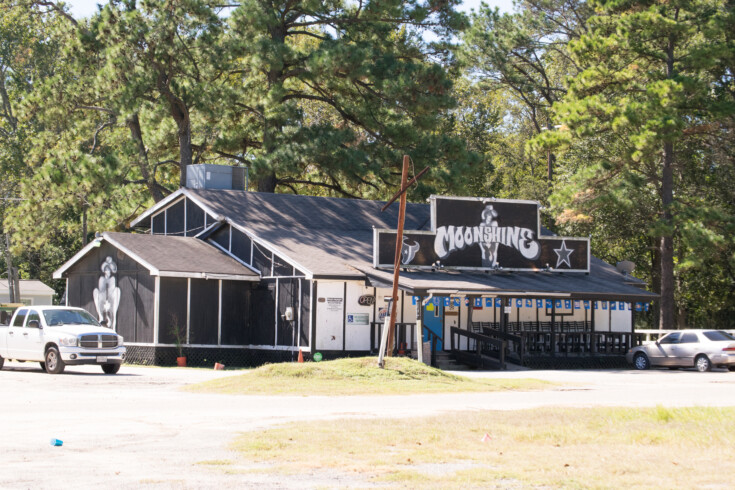
Moonshine is a term that is commonly associated with homemade, high-proof alcohol. In Texas, the production and distribution of moonshine is a topic of interest for many. The legality of moonshine in Texas is a complex issue, as the state has strict laws and regulations regarding the production and distribution of alcohol.
Home distilling of spirits is a popular hobby for many Texans, but it is important to understand the laws and regulations surrounding the production of alcohol. In this article, we will explore the legality of moonshine in Texas, including the state’s laws on home distilling.
 photo credit: www.flickr.com
photo credit: www.flickr.com
Table of Contents
Understanding Moonshine
Moonshine is a term used to describe any distilled spirit that is produced illegally, without a license or proper permits. It is typically made from corn mash and sugar, although any food that contains starch can be used. Moonshine is also known as white whiskey or white lightning.
The name “moonshine” comes from the fact that it was often produced at night, under the light of the moon, to avoid detection by the authorities. It has a long history in the United States, dating back to the early days of the country.
One of the reasons why moonshine is illegal is because it is an untaxed liquor. The government requires that all distilled spirits be taxed, and those who produce moonshine do not pay these taxes. Additionally, moonshine is often produced in unsanitary conditions, which can lead to health risks for those who consume it.
Despite its illegal status, moonshine has remained popular in certain parts of the country. It is often associated with rural areas and has become a symbol of rebellion and independence.
Legal History of Moonshine in Texas
Moonshine, or unlicensed distillation of high-proof liquor, has a long and storied history in Texas. The practice of making moonshine dates back to the early days of the state, with early pioneers concocting “white lightning” long before late-nineteenth-century prohibition laws boosted the market for illegal whiskey.
 photo credit: www.flickr.com
photo credit: www.flickr.com
In 1791, Alexander Hamilton, Treasury Secretary, placed an excise tax on whiskey to ease the financial burden of the United States. This tax was met with widespread opposition, leading to the Whiskey Rebellion of 1794. This event helped to establish the precedent of moonshining as a form of rebellion against government authority.
In Texas, the local option laws of 1876 and 1891 gave power to counties and communities all over the state, allowing them to prohibit liquor within their localities. However, this did not stop the production of moonshine, which continued to be made in secret.
During the Prohibition era, from 1920 to 1933, the production and sale of alcohol was illegal throughout the United States. In Texas, Governor Neff amended the state’s prohibition law in 1923 to make the possession of more than one quart of liquor or any material used in the manufacture of liquor a felony. This law made personal violations of prohibition a felony, increasing the fine and entailing more prison time.
Current Legal Status of Moonshine in Texas
The Texas Alcoholic Beverage Commission (TABC) regulates the production, distribution, and sale of alcoholic beverages in the state, and moonshine is not exempt from these regulations.
Under Texas law, it is illegal to manufacture, distribute, sell, or possess moonshine. Violators of these laws can face criminal charges and steep fines. The penalties for producing moonshine in Texas vary depending on the amount produced and the intent of the producer, but they can range from a Class B misdemeanor to a first-degree felony.
Despite the illegality of moonshine production in Texas, some people still attempt to produce and distribute it. Law enforcement agencies in the state are vigilant in their efforts to catch and prosecute those involved in moonshine production and distribution.
It is important to note that not all distilled spirits are illegal in Texas. Licensed distilleries are permitted to produce and sell spirits, including whiskey, gin, and vodka, as long as they comply with TABC regulations.
Moonshine is illegal to produce, distribute, sell, or possess in Texas due to its status as an untaxed liquor. Violators can face criminal charges and steep fines. While licensed distilleries are permitted to produce and sell spirits, including whiskey, gin, and vodka, as long as they comply with TABC regulations.
Texas Laws on Distilling Alcohol
In Texas, it is illegal to distill liquor without obtaining a proper license. According to the Texas Alcoholic Beverage Code, Section 5.01, no person shall manufacture, distill, brew, sell, or possess any alcoholic beverage without a proper license. Violating this law could result in fines, imprisonment, or both.
Individuals who want to distill liquor in Texas must obtain a Distiller’s Permit from the Texas Alcoholic Beverage Commission (TABC). The permit allows the holder to manufacture, bottle, and sell distilled spirits to wholesalers, distributors, and retailers. The permit also allows for the sale of up to two 750ml bottles of liquor made by the facility to customers within a 30-day period.
It is important to note that individuals who distill liquor for personal consumption are exempt from obtaining a Distiller’s Permit. However, it is still illegal to sell or distribute any homemade liquor.
Additionally, the possession of equipment or materials designed for, capable of use for, or used in manufacturing an illicit beverage is illegal in Texas. This includes equipment used for distilling, fermenting, or bottling alcohol.
Penalties for Illegal Moonshine Production
Under Section 130.02 of the Texas statutes, owning a still without a commercial distilling license is illegal. This law is in place to prevent individuals from using the still to manufacture illegal alcohol, including moonshine. If caught with an illegal still, individuals can face fines of up to $10,000 and up to 10 years in prison.
Additionally, those caught producing or selling moonshine can face fines of up to $1,000 and up to a year in jail for a first offense. Subsequent offenses can result in even higher fines and longer prison sentences.
It’s also important to note that transporting moonshine is illegal in Texas. If caught transporting illegal alcohol, individuals can face fines of up to $1,000 and up to a year in jail for a first offense. Subsequent offenses can result in even higher fines and longer prison sentences.
Obtaining a Distillery License in Texas
To legally manufacture and sell moonshine in Texas, one must obtain a distillery license from the Texas Alcoholic Beverage Commission (TABC). The TABC is responsible for regulating the manufacturing, distribution, and sale of alcoholic beverages in the state.
To obtain a distillery license, one must submit a request for a basic permit (TTB 5110.41) to the TTB (Alcohol and Tobacco Tax and Trade Bureau). This license only allows for the production of spirits. Additionally, one must obtain a license for the distilling equipment (TTB 5100.24 Distilled spirit plant) and comply with all relevant state and federal regulations.
It is important to note that owning a still without a commercial distilling license is illegal in Texas. Section 130.02 of the Texas statutes prohibits individuals from legally owning a still if they do not have a commercial distilling license. This is because stills can be used to manufacture illegal alcohol.
Once a distillery license is obtained, the licensee must comply with all TABC regulations, including hours of operation and sales restrictions. According to the TABC, licensed distillers can sell beverages to the public to consume at the licensed premise during specific hours. These hours include Monday-Saturday: 7 a.m. to midnight (or 1 a.m. Sundays) and Sunday: 10 a.m. to noon (with food service only) and noon to midnight.
Frequently Asked Questions
Can you legally make moonshine for personal use in Texas?
No, it is illegal to distill moonshine in Texas, even for personal use. The state government has a legal monopoly on alcohol production, and individuals must obtain the necessary permits and licenses to produce alcohol legally.
Is it illegal to own a still in Texas?
No, it is not illegal to own a still in Texas. However, it is illegal to use a still to distill alcohol without the necessary permits and licenses.
What is the penalty for illegal distilling in Texas?
The penalty for illegal distilling in Texas can vary depending on the circumstances. Generally, it is considered a felony offense that can result in fines, imprisonment, or both.
Is it legal to distill alcohol in Texas?
Yes, it is legal to distill alcohol in Texas, but only with the necessary permits and licenses. The state government has a legal monopoly on alcohol production, and individuals must comply with the relevant laws and regulations.
What states allow the production of moonshine?
The production of moonshine is illegal in most states, including Texas. However, some states have relaxed laws around the production of small amounts of alcohol for personal use, such as Oregon and Missouri.
What is the alcohol content of illegal moonshine?
The alcohol content of illegal moonshine can vary widely depending on the distiller and the production process. However, it is generally much higher than commercially produced alcohol, with some batches reaching up to 190 proof. This high alcohol content can be extremely dangerous and can lead to serious health problems or even death.
Conclusion
Moonshine is illegal to distill in Texas without a commercial distilling license. The state law prohibits individuals from owning a still without a license, as it can be used for the production of illegal alcohol. While there are regulations in place to govern the production and sale of moonshine, it remains a part of the Texas culture.
Despite the illegality of moonshine, there are still hobbyists who engage in the production of homemade liquor. However, the Texas Alcoholic Beverage Commission does not actively pursue individuals who engage in home distilling, unless there is evidence of illegal distribution or sale.
It is important to understand the laws and regulations surrounding the production and sale of moonshine in Texas to avoid any legal consequences. While it may be tempting to engage in the production of homemade liquor, the risks and penalties associated with illegal distilling are not worth it.
Related Posts
Here are some related posts that may interest readers who want to learn more about whiskey and its culture:
- What Alternatives to Glencairn Whisky Glasses?: The Norlan Glass is a popular alternative to traditional Glencairn Whisky Glasses. This post explores the pros and cons of using the Norlan Glass and other alternatives.
- Is Crown Royal Pineapple a Real Flavor? Here’s What You Need to Know: Crown Royal Pineapple is a whiskey-based liqueur that has generated some buzz in recent years. This post delves into the origins of the flavor and whether it’s worth trying.
- Where Can You “Blend Your Own” Whisky?: Blending your own whisky is a fun and creative way to explore different flavors and aromas. This post provides a list of bars and distilleries where you can blend your own whisky.
- Did you know you could own a Scotch Whisky diploma?: The Edinburgh Whisky Academy offers a diploma program that covers all aspects of Scotch whisky production and culture. This post explains what the program entails and how to enroll.
- What The F*** Is Peat Anyway?: Peat is a key ingredient in many whiskies, but what exactly is it? This post explores the science behind peat and how it affects the flavor of whisky.
These posts provide a wealth of information for anyone interested in the world of whiskey.



